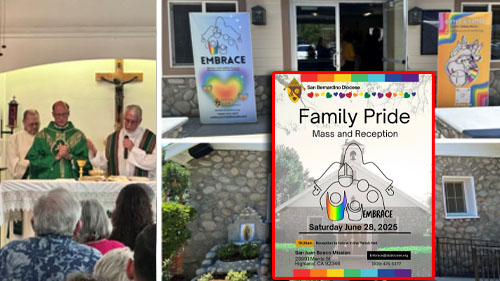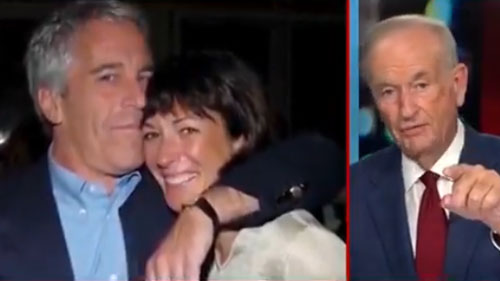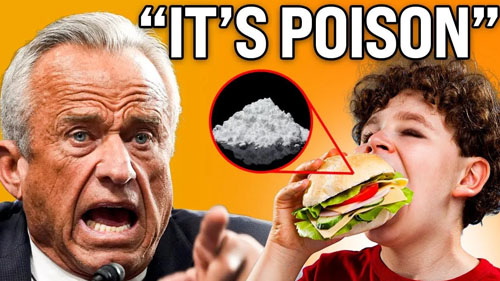| Recent Featured Videos and Articles | Eastern “Orthodoxy” Refuted | How To Avoid Sin | The Antichrist Identified! | What Fake Christians Get Wrong About Ephesians | Why So Many Can't Believe | “Magicians” Prove A Spiritual World Exists | Amazing Evidence For God | News Links |
| Vatican II “Catholic” Church Exposed | Steps To Convert | Outside The Church There Is No Salvation | E-Exchanges | The Holy Rosary | Padre Pio | Traditional Catholic Issues And Groups | Help Save Souls: Donate |  |









 " />
" /> " />
" /> " />
" /> " />
" /> " />
" />




Refuting R. I.
NOTE: In recent months, this individual R.I. has actually denounced canonized Catholics saints as heretics. Specifically, he has denounced St. Alphonsus and St. Thomas Aquinas as heretics. This proves what I have said about him, that he is a non-Catholic heretic who has literally founded his own sect. Some people couldn’t see it then, but perhaps they see it now. By denouncing as heretics canonized saints, he actually has put himself on the level of the Protestant reformers. He is now in the category of Protestant revolutionaries Martin Luther, John Calvin and other heretics (such as Joseph Smith, founder of the Mormons) who founded their own “Churches.” He would literally have to hold that the Catholic Church fell into apostasy for centuries, by honoring and declaring as saints those he considers non-Catholic heretics, and that it is he who must come to “restore” the purity of the Gospel. He even said that, if he could, he would “bring St. Thomas Aquinas back from Hell, put his skin on him, rip it off, and then pour vinegar on his wounds!” Yes, R.I. actually said this while claiming to be Catholic (listen to part 4 of the audios below).
Part 1- Introduction and quick background on these radical schismatics [9 min audio.]
Part 2 - In depth refutation of their false arguments regarding the Council of Basel and the salvation dogma [50 min. audio]
Part 3 - Refutation of the Argument that Canonizations are not infallible by virtue of the teaching of Vatican I [20 min. audio]
Part 4 - Exposing the demonic and shocking statements of the schismatic RI – the source for many strains of "traditionalist" schism [16 min. audio]
In this Article:
Intro to R. I.’s Principal Heresy
Breaking down R. I.’s Principal Heresy
R. I. cracks and repudiates his own abjuration under interrogation
R. I.’s Retreat
R. I.’s Degrees of Schism
R. I. is a False Prophet by his own admission
Introduction to R. I.’s Principal Heresy
Since we have added a book/article review section to our website, we felt that it was appropriate to have an article refuting the primary claims of R. I. and exposing his principal heresy. For those of you not familiar with R. I. (I abbreviate his name so as not to further perpetuate his views), this article may not have tremendous relevance. However, this article is written specifically for that small number of people who may have been influenced by R. I.’s writings. This article is not meant to be an in-depth refutation of R. I., but primarily an expose of his chief heresy, which is the dynamic at work behind almost all of his schismatic conclusions.
R. I. holds that every person above the age of reason who still believes that Antipope John Paul II is the Pope is a heretic without any exceptions. He also holds that every single person who attends a Mass said by a priest who prays in communion with Antipope John Paul II is a heretic, even if the person doesn’t agree with or support the priest. And he further holds that any person who attends Mass where the priest is negligent in upholding the faith is a heretic. In addressing these issues, I will start with the first point: Every person above reason who still believes that Antipope John Paul II is the Pope is a heretic without any exceptions. At Most Holy Family Monastery, we reject this position, as it is untenable from a theological perspective. We acknowledge, rather, that all those who obstinately reject the Catholic teaching proving that Antipope John Paul II cannot be the Pope once it has been presented to them and they have digested it – such as the dogma that heretics are not members of the Church – are heretics.
We also acknowledge that all those who see Antipope John Paul II’s heresies (for instance, his agreement with the Lutherans on the doctrine of Justification) and obstinately maintain that he is a Catholic (and therefore is one who has the true faith) are rejecting the Catholic Faith and are heretics. Finally, we acknowledge, in accordance with Catholic principles, that those who deliberately or culpably ignore the evidence proving that Antipope John Paul II cannot be the Pope are guilty of sins of omission and are in communion with heretics.
However, that being said, none of the above allows us to assert that every single person without exception who still believes Antipope John Paul II to be the Pope is a heretic. There may be – and most certainly are - some professing Catholics who detest the heresies of Antipope John Paul II, yet have not been exposed to the Catholic teaching proving why he cannot be the Pope. Such persons could certainly be Catholics in good faith. There also may be – and most certainly are – some people who possess the Catholic faith (do not partake in any false worship), yet who simply are unaware of Antipope John Paul II’s heresies. (This number may be quite small, but that doesn’t allow one to conclude that none of these people are Catholics).
Therefore, it is unjustified and actually schismatic to formally assert, as R. I. does, that every single person without exception who holds that Antipope John Paul II is a Pope is a heretic. This assertion is schismatic because it separates R. I. and his followers from communion with Catholics who hold to no heresy. A schismatic is one who refuses communion with a true Pope or with true Catholics. Thus, we can only acknowledge as heretics those whom we know or can demonstrate persist in rejecting a Catholic teaching. Nevertheless, R. I. has composed an abjuration formally declaring that all persons above the age of reason – without any exceptions whatsoever – who still believe that Antipope John Paul II is the Pope are heretics. I quote:
Before examining this claim, I must also prove what I stated above: that R. I. has also formally declared that everyone without exception who attends a Mass where the priest believes Antipope John Paul II to be the Pope is a heretic – even if the person doesn’t agree with or support the priest.
These positions are theologically absurd, in addition to being blatantly heretical and schismatical, as will be proven in the following breakdown. And please note: by suggesting and proving, as I will below, that the above positions are theologically absurd, I am not in the least suggesting that they are absurd because it would render so many persons who profess to be Catholics and “traditional” Catholics as heretics. Not at all. As stated above, all those who obstinately maintain that Antipope John Paul II is the Pope, once they have had the chance to see the evidence relevant to this issue or have deliberately ignored the evidence relevant to this issue, in addition to all those who see his heresies and still think he possesses the true faith, are heretics and are not Catholics. This unfortunately includes many, if not most, of those persons who attend the Latin Mass. (Most of these persons also obstinately reject the Catholic dogma, Outside the Church There is No Salvation) But this being the case does not allow one to formally assert what is asserted above, that every single person without exceptionwho still believes John Paul II is the Pope is in bad faith and is a heretic.
Breaking down R. I.’s Principal Heresy
Never is this statement more true than in the case of R. I. and the schismatic sect which he has created. Please bear with me as I prove this. Suppose I were to ask you the question: "how many wills does Jesus Christ have, one or two?" I have posed this question to many traditional Catholics, and almost all of them have responded "one.” This is not correct. Jesus Christ has two wills, a divine and a human will. Jesus Christ is one Divine Person with two natures (He has a Divine nature and a human nature) and therefore He has a Divine will and a human will. If Our Lord did not have a human will then He would not be truly man as well as truly God. The idea that Our Lord has only one will was solemnly anathematized by the Third Council of Constantinople.
To assert that Our Lord Jesus Christ has only one will is precisely the monothelite heresy. So, were these Catholics that I questioned on this issue heretics and outside the Body of Christ for answering that Christ has "one will"? No, they were not heretics, because 1) they thought this was the Catholic position and didn't understand all the ramifications of the issue; and 2) they weren't aware that it has been defined that Christ has two wills: one for each nature. (Note: If they had comprehended beforehand that to say that Christ has one will is actually to deny Our Lord’s humanity then they would be heretics, but this was not the case). Therefore, to put it simply, these Catholics were not obstinate or pertinacious in their belief that Christ has one will (i.e., they did not deliberately or knowingly deny this teaching of the Church) and therefore they were not heretics.
And this is a good example of how pertinacity or obstinacy is a requirement for heresy. Thus, these Catholics who held that Christ had one will were not heretics unless they demonstrated obstinacy in this belief; but, being of good will, after I informed these persons that it is a defined dogma that Christ has two wills (which is intimately connected to the fact that He has two natures) they immediately changed their position. If after that point they had affirmed that Christ had only one will, they would have been heretics and outside the Church.
Therefore, this dogma (Christ's two wills) is an example of a dogma or a truth of faith or a dogmatic fact that doesn't have to be known positively by all in order to be saved. It can never be rejected, but some people could be innocently ignorant of it or confused about it until the Church's teaching is pointed out to them or explained to them, because a Catholic is not bound to have a positive knowledge of all the teachings of the Church to be a Catholic. I hope that the reader is following me so far.
However, with a mystery of faith that must be positively known by all to be saved, there can be no confusion or ignorance like that described on Christ's two wills. With these mysteries – such as the mysteries of the Trinity and the Incarnation – you must positively know them in order to be saved, and you must know them positively in all ages. This is why “invincible ignorance” cannot save anyone, and this idea is a horrible heresy, because no one above reason who wishes to be saved can be ignorant of the principal mysteries of Catholicism and be saved.
Here we see Pope Benedict XIV confirming the Catholic teaching that there are certain mysteries of faith that no one above the age of reason can be ignorant of and be saved (such as the mysteries of the Trinity and the Incarnation). But this does not apply to all the truths of the Catholic faith, as stated above when discussing the dogma of Christ’s two wills. A Catholic could be ignorant in good faith of some of the other truths of the faith; but he can never be ignorant of the Faith itself (i.e., the principal mysteries). Pope St. Pius X confirms the exact same teaching.
Okay, now that we have established that there are certain mysteries of Catholicism that everyone above the age of reason must positively know in order to be saved, and that there are many other deeper dogmas (such as Christ’s two wills) that Catholics above reason could be ignorant in good faith about, the next important point to realize is that the former category (i.e., the mysteries of faith that all must positively know to be saved) ALWAYS REMAINS THE SAME! I REPEAT, THESE PRINCIPAL MYSTERIES OF THE CATHOLIC FAITH THAT ALL ABOVE REASON MUST POSITIVELY KNOW IN ORDER TO BE CATHOLIC AND BE SAVED ALWAYS REMAIN THE SAME IN EVERY GENERATION.
It is a defined dogma that Revelation, constituting the object of Catholic faith, ended with the apostles. This means, among other things, that the object of Catholic faith (i.e., what everyone above reason must positively know in order to be Catholic and be saved) was the same in the time of the apostles as it is now.
So the logical question then is: Is the fact that John Paul II is an Antipope a truth of faith/ dogmatic fact that has to be positively known by all in all ages to be saved (like the Trinity and Incarnation)? Or is it a something that must be acknowledged once all the facts from the Magisterium have been presented to him (like the dogma on Christ's two wills)? Obviously, it is not a truth of faith or a dogmatic fact that had to be known positively by all in all ages to be saved, because this dogmatic fact (flowing from the dogma that heretics are not members of the Church) only became knowable in the last 25 years. Therefore, the dogmatic fact that Antipope John Paul II is not the Pope (flowing from the dogma that heretics are not members of the Church) is obviously something that must be acknowledged once the facts have been presented to him, like the dogma on Christ’s two wills. It does not have to be known positively by all Catholics in all ages without excuse for ignorance in order to be saved.
Therefore, in light of these facts, what does one conclude about the following statement in R. I.’s formal abjuration?
One rightly concludes that this assertion is completely false, and heretical and schismatical, as should be obvious to those who have followed the points made already. R. I. has fallen precisely into the heresy that Revelation, constituting the object of Catholic Faith (namely, what must be positively known by all in all ages), was not completed with the apostles! R. I. says that the object of Catholic Faith (i.e., what everyone above reason must positively know without excuse for ignorance) is different today than in the 1st century or even 50 years ago.
One should see that R. I. has transformed the dogmatic fact (flowing from the dogma that heretics are not members of the Church) that Antipope John Paul II is not Pope into a truth of faith that must be known positively by all to be saved (like the Trinity and the Incarnation). And in transforming the dogmatic fact that Antipope John Paul II is not Pope into a truth of faith that must be known positively by all to be saved without excuse for ignorance, R. I. clearly teaches that Revelation, constituting the object of Catholic Faith – and what we must know positively in all ages to be saved – did not end with the death of the last apostle, which is heresy!
Furthermore, what renders R. I.’s denial of this dogma all the more blatant is the fact that R. I. even admits that certain Catholics could have been ignorant in good faith of the dogmatic fact that Antipope John Paul II is not the Pope just a matter of a few years ago!
R. I. has admitted to me that Catholics living in the 1970s and 1980s could have been ignorant in good faith of the fact that John Paul II is an Antipope because it “was not manifest to all then”! But then R. I. proceeds to assert that in the year 2003 (a period of time which he defines as “the latter days of the great apostasy”) no one could possibly be ignorant of the fact that John Paul II is an Antipope; that is, all above reason must possess a positive knowledge of it or they are damned. But to admit that the dogmatic fact that John Paul II is an Antipope was not a fact that everyone had to positively know in 1985 (as R. I. does) and then to say that everyone has to know it positively (like the Trinity and Incarnation) in 2003 under pain of damnation, even before the facts are presented to him, is to say that there has been a public revelation between 1985 and 2003 (“between the early days of the Great Apostasy and “the latter days of the Great Apostasy”) a revelation which, according to R. I., has transformed the dogmatic fact that John Paul II is an Antipope from something that had to be known once the facts were presented to him into a mystery of faith that must be positively known by all without excuse for ignorance (like the Trinity and Incarnation).
Therefore, R. I. clearly rejects the dogma that revelation ended with the death of the last apostle, by rejecting that the mysteries of faith that must be positively known by all to be saved without excuse for ignorance are the same today as they were at the death of the last apostle. Since R. I. and his followers are obstinate in this heresy (I have pointed it out to them repeatedly), they are not Catholics, but unfortunately, they are obstinate heretics and schismatics. This issue alone shows, on dogmatic grounds, that R. I. and his schismatic sect do not possess the true faith. In fact, this was proven in striking fashion by an e-mail exchange that I recently had with R. I.
R. I. Cracks and Repudiates His Own Abjuration Under My Interrogation
Off and on for some time, I had been conversing and debating these points with the followers of R. I. Each time I would present the above facts (which show that R. I.’s abjuration is heretical and schismatical), my words would seemingly fall on deaf ears. R. I. and his followers had no explanation for the heretical portions of R. I.’s abjuration that I was exposing. So, after I had answered some of R. I.’s questions I demanded his followers to answer a few of mine. R. I. obliged and the debate – for reasons that will soon be clear – came to an abrupt end.
My question to R. I. was the following:
I knew that neither he nor any of his followers could answer this question, but he tried, and in so doing he made a fatal mistake.
R. I.’s Answer, (9/2/03), 5:07 P.M. Eastern Time:
Did you get that? R. I. is admitting here that the dogmatic fact that a notorious heretic (such as Antipope John Paul II) cannot be Pope involves a deeper dogma which Catholics in good faith could deny (i.e., be ignorant of) if it had not been taught to them! This means that, according to R.I., Catholics today could be in good faith and hold that John Paul II is Pope if the facts were not taught to them! This statement completely rejects the positions set forth in his own abjuration, an abjuration that he and his followers demand others to sign if they would be accepted by them. I quote the statements from his abjuration again:
As anyone can see, when pressed by my interrogation, R. I. completely changed his position from what is written in his abjuration. He blatantly rejected the position of his heretical abjuration which he nevertheless still demands others to sign. Thus, rather than attempting to defend his indefensible and heretical abjuration form, R. I. cracked like an egg and proved the very point that I had been attempting to point out to he and his followers for some time. He proved the point that the dogmatic fact that Antipope John Paul II is not the Pope is something which all must acknowledge once the relevant facts are available to him (like the dogma on Christ’s two wills). It is not a mystery of faith that must be positively known and believed by all above reason for salvation without any exceptions or excuses for ignorance (such as the dogma of the Trinity).
R. I.’s Cowardly Retreat
After R. I. sent me the e-mail wherein he completely repudiated the position of his abjuration under my interrogation, I sent him a final e-mail pointing out this fact and demanding that, in honesty, he acknowledge that his abjuration is heretical. So, on 9/4/2003 at 3:35:27 PM he wrote a final e-mail:
R. I.’s conscience was obviously convicted by the fact that I had just pointed out a clear heresy in his abjuration, and that I had caught him totally changing and repudiating his position. He did not want to see any more of this. He could not even bear to read anymore e-mails from us, as he knew that his lying abjuration had been exposed (by his own responses!) and he had no explanation for it (as there is none). He also told his few followers to read nothing of what we would send them, obviously hoping that they would not catch wind of what had just been exposed. He then simply disregarded the clear heresy in his abjuration, disregarded the fact that he had just repudiated his abjuration and completely changed his position under interrogation, and went on his way.
R. I.’s Degrees of Schism
By refuting R. I.’s principal heresy, one can see the degrees of schism into which he has fallen; for, as stated already, R. I. not only falsely and schismatically asserts that every person who still holds that Antipope John Paul II is the Pope is a heretic (a position he was forced to repudiate under my interrogation), but he asserts that all without exception who still attend Mass at a church where the priest holds that Antipope John Paul II is the Pope are ipso facto heretics.
Now, let’s break this down, and please bear with me: If some persons could still be Catholics while holding that John Paul II is the Pope (if they have not seen the facts relating to the issue and hold to no other heresies), as proven above, and which R. I.’s own e-mail admits in direct contradiction to his abjuration, then one could also be unaware in good faith about the fact that one shouldn’t attend the Mass of a priest who prays in communion with Antipope John Paul II, right? – granting for the sake of the argument the unproven position that one should never knowingly attend such a Mass. Of course such a person could be in good faith; R.I. would have to admit this, but this is again a direct contradiction to his abjuration. In his abjuration, R. I. condemns all the people who attend such Masses, knowingly or not, thereby condemning all the sedevacantists who attend these Masses and eliminating the possibility that any of them could be unaware of the fact that they shouldn’t attend, even if that were the true position.
Does the reader see that with this R. I. has reached, if you will, the second degree of schism? R. I. cannot even lift the first bar, namely, his claim that all those without exception who still believe that Antipope John Paul II is the Pope are heretics; but yet, he proceeds to formally declare (or try to lift) the second, that all those – even sedevacantists – who attend such Masses are heretics. Finally, R. I. not only declares that all those who attend the Masses of priests who pray in communion with Antipope John Paul II are heretics, but he even says that all the people attending the Masses at all the sedevacantist chapels are heretics! He reaches this “third degree” of schism by pointing out that there are no Catholic priests in the world – which is almost true, there are hardly any – and therefore that all the chapels in the world are non-Catholic and therefore all the people in the world who attend these chapels are non-Catholics. But his conclusion in this regard is plagued by the same invalid reasoning that led him to reach the first two degrees of schism. Even at those sedevacantist chapels where the priests are heretics for denying Outside the Church There is No Salvation (which includes almost every one that we know of), this does not mean that 1) a person attending that chapel is guilty if he doesn’t agree with or support the priest or 2) all the persons attending that chapel even are aware of the priest’s heresy. Therefore, one can see that to formally declare that all such persons are heretics is supremely absurd and totally schismatic, on the same grounds and for the same reasons as those discussed above.
R. I. is a False Prophet by his own admission
It is also a fact worthy of note that R. I., a married man who is no longer with his wife, claims to be a prophet. He has been claiming this for some years now. Besides the fact that R. I. is a heretic and a schismatic, as proven already, R. I. cannot be a prophet as he claims to be, because he admits that he was a heretic just a few years ago at the same time he was proclaiming himself to be a prophet!
Regarding a Latin Mass chapel he attended for a while just a few years ago (which he now considers to be a non-Catholic church full of notorious heretics), R. I. writes:
And what was R. I.’s “crime”?
And what was his penalty?
Remember, R. I. claimed to be a prophet this whole time.
R. I. here shows us, in striking fashion, that he is indeed a false prophet and deceived by the devil; for he is admitting that he was outside the Catholic Church at the same time that he claimed to be a prophet. By such a striking admission, God is allowing all of R. I.’s few followers a chance to see the proof from R. I.’s own mouth, that R. I. is a false prophet who is used by the devil to foster schism on the right; for one certainly cannot be a prophet for the Body of Christ while being outside of it for heresy.
Thankfully, I was able to point out this major problem to R. I.’s followers in an e-mail that I sent to them; and R. I.’s response is again revealing.
Comment: This has nothing to do with “being wrong.” This has to do with claiming to be a prophetic teacher of the Catholic faith in the last days while simultaneously admitting that you are outside of the Catholic Church for denying the Catholic faith. Only a fool would say that the two are compatible. So, R. I.’s attempted response that prophets have been wrong is a truly pitiful attempt to defend the indefensible. I continue with his response:
R. I.’s own testimony speaks for itself. He witnesses against himself that he is a false prophet who, if he continues to promote schism and heresy, will end up being burned. In fact, R. I.’s rashness leads him to make statements such as the following diabolical one:
While R. I. makes a valid point here, that most so-called “traditional Catholics" today despicably deny the Faith and care only about the Latin Mass (i.e., the “Latin Mass alone” heretical mentality) and are therefore not Catholic, this does not justify the egregious claim that because this is so the children of such persons who have been molested deserve to be molested. This is another example of R. I.’s invalid reasoning, whereby he states a truth and then proceeds conclude something that is not warranted by that truth and which is even evil.
There are other problems with R. I.’s positions, but the above should suffice for the purposes of this article. In the meantime we pray for the conversion of R. I.
Those who have signed R. I.’s schismatic abjuration must repudiate it and confess having signed a schismatic profession of faith that unjustifiably condemns as heretics and schismatics certain people who cannot be proven to be heretics and schismatics.
Sign up for our free e-mail list to see future vaticancatholic.com videos and articles.
Recent Content
^